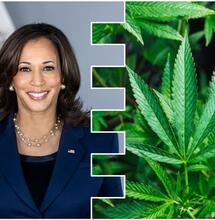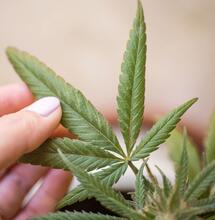Democrats to Introduce Bill in Senate to Federally Decriminalize Cannabis

But don't get your hopes up so quickly. Decriminalizing cannabis at the federal level in the US more looks like running one long marathon. And the end is not near yet.
Senate Majority Leader Chuck Schumer, D-N.Y., plans to institute legislation that would decriminalize marijuana on a federal level, reports USA Today.
The draft bill by Sens. Cory Booker, D-N.J., and Ron Wyden, D-Ore., and Mr. Schumer is named The Cannabis Administration and Opportunity Act. Bill aims to remove marijuana from the Controlled Substances Act, paving the way for its regulation and taxation.
Schumer's push to federally decriminalize marijuana "marks how far the conversation on criminal justice reform has come," writes USA Today.
The bill is being introduced at a time when 37 states have already decriminalized pot. With Connecticut being the latest of states to adopt a regulation for adult use, there are now 19 states where Americans can use the substance both for medical and recreational purposes. It also means the majority of Americans now live in a state where marijuana is legal.
"This is monumental," Schumer said Wednesday, July 14, in a news conference announcing that a draft bill is going to be discussed in Senate. "At long last, we are taking steps in the Senate to right the wrongs of the failed war on drugs."
According to the draft bill, the legislation would decriminalize cannabis and will also expunge non-violent pot-related arrests and convictions from federal records. As a new tax source, marijuana sales will also allot funds for restorative justice programs as means to address the consequences the war on drugs had on communities.
“By ending the failed federal prohibition of cannabis the Cannabis Administration and Opportunity Act will ensure that Americans especially Black and Brown Americans no longer have to fear arrest or be barred from public housing or federal financial aid for higher education for using cannabis in states where it's legal,” a release accompanying the bill said.
"It's clear from current law in other contexts that we have the capacity to safely and responsibly regulate cannabis sales, possession, and use in a way that balances individual liberty with public health and safety," the release read.
The bill will redefine "cannabis" as a substance, and it will look for an appropriate way to measure the potency of its products. This definition would retain the existing exception for hemp.
The Sponsoring Offices for the bill will also request comments on agency responsibilities, including the appropriate division of responsibilities and coordination between the Food and Drugs Agency (FDA), The Alcohol and Tobacco Tax and Trade Bureau (TTB), and The Bureau of Alcohol, Tobacco, Firearms and Explosives (ATF).
When—and if—the bill is introduced, the cannabis industry would basically follow federal rules and guidelines, with states still retaining control over their marijuana laws. For the first time, will businesses be able to sell marijuana products without the fear of legal repercussions. Access to essential financial services like bank accounts and loans will also follow.
While a majority of Americans support the full legalization of cannabis, Schumer's bill may well crumble on the Senate floor. According to a survey by Pew Research Center run in April this year, 60% of Americans think that marijuana should be legalized for recreational and medical use. 31% say only medical use should remain legal, and only 8% of respondents within the same survey think marijuana should not be made legal at all.
In an evenly divided Senate, these numbers don't mean much. Schumer would need the backing of at least ten Republican senators to get the bill to a vote. Traditionally, Republicans would oppose any federal effort when it comes to decriminalization. And it wouldn't be so different this time around.
President Joe Biden hasn't voiced his support for the legislation yet, so the President might too pose another obstacle.
What counts is that decriminalization is slowly building momentum, with more political actors and agents showing the will and approving of it.







_11zon.png)